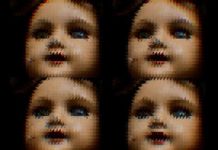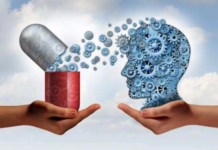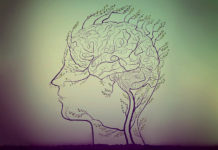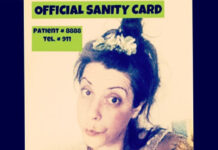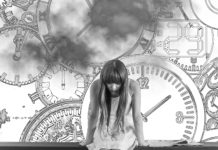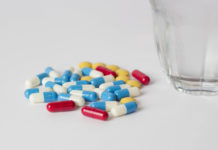Metacognitive Training (MCT): A New Treatment Approach for Delusions
Since psychosis does not occur instantaneously and suddenly, but is often preceded by a gradual change in the appraisal of one’s cognitions and social environment, empowering metacognitive competence may act prophylactically to prevent or hinder a psychotic breakdown.
Hereditary Madness? The Genain Sisters’ Tragic Story
The story of the Genain quadruplets has long been cited as evidence proving something about the supposed hereditary nature of schizophrenia. But who wouldn’t fall apart after surviving a childhood like theirs? The doctors attributed their problems to menstrual difficulties or excessive masturbation — anything except abuse.
Waiting for Gravity
Of course one wishes for an easy answer, but the things that conspire to drive a person over the edge are too numerous and varied ever to point and say, it was this one; one can never really be so certain. No one can say it wasn’t that one, or that it wasn’t really all of those together, or that, when it came my own turn for “insanity,” I wasn’t standing halfway over the edge already, waiting for gravity to kick in and for me to fall.
Study Finds Hearing Voices Groups Improve Social and Emotional Wellbeing
Hearing Voices Network self-help groups are an important resource for coping with voice hearing, study finds.
Is an Ominous New Era of Diagnosing Psychosis by Biotype on the Horizon?
When former NIMH chief Dr. Thomas Insel speaks, people listen. Dr. Insel famously criticized the DSM a couple of years ago for its lack of reliability. He notably broke ranks with the APA by saying there were no bio-markers, blood tests, genetic tests or imaging tests that could verify or establish a DSM diagnosis of schizophrenia, bipolar or schizoaffective disorder. However in a new article he announces research that claims to have found bona-fide physiological markers that identify specific "biotypes" of psychosis. This system could, purportedly, identify a person as possessing a specific biotype of psychosis, instead of a DSM-category diagnosis.
Contribution of Antipsychotics to Suicidality and Depression
Peter Lehmann reviews the contribution of antipsychotics to suicide and depression in schizophrenia in the current International Journal of Psychotherapy. Publications about the intrinsic effects of...
Risk of Suicide After Hospitalization Even Higher Than Previously Estimated
New analysis of post-discharge suicide rates finds estimates 6 times higher than recent studies.
Vitamin B6 Effective in Reducing Antipsychotic Induced Akathisia
A recent RCT showed that vitamin B6 is as effective as propranolol for the treatment of akathisia.
Researcher Acknowledges His Mistakes in Understanding Schizophrenia
Sir Robin Murray, a professor at the Institute of Psychiatry, Psychology, and Neuroscience in London, states that he ignored social factors that contribute to ‘schizophrenia’ for too long. He also reports that he neglected the negative effects antipsychotic medication has on the brain.
Healing From Schizophrenia
My experience is that living in a psychosis forces your brain to "stretch" — you develop extra capacity to handle things. I was pretty much living a normal life, even working some of the time, while having all of my psychotic problems. After the psychoses faded away, I no longer needed to fight monsters, but I still had that extra capacity left. After 11 periods of psychosis, my brain has never worked as well as it does now.
Study Deems Support, Not Drugs, Best for Youth at Risk of Psychosis
Research by five U.K. universities across multiple sites for up to two years divided 288 young adults (14-35 years) deemed at risk for psychosis...
Schizophrenia Deconstructed
After a few weeks it became clear to me the complete lack of comprehension that I faced as a person claiming to have been cured of psychosis. Being a schizophrenic claiming to no longer suffer from schizophrenia only made me seem more schizophrenic due to the current culture of psychiatry.
Trauma, Psychosis, and Dissociation
Recent years have seen an influx of numerous studies providing an undeniable link between childhood/ chronic trauma and psychotic states. Although many researchers (i.e., Richard Bentall, Anthony Morrison, John Read) have been publishing and speaking at events around the world discussing the implications of this link, they are still largely ignored by mainstream practitioners, researchers, and even those with lived experience. While this may be partially due to an understandable (but not necessarily defensible) tendency to deny the existence of trauma, in general, there are also certainly many political, ideological, and financial reasons for this as well.
Psychiatry Defends Its Antipsychotics: A Case Study of Institutional Corruption
Jeffrey LIeberman and colleagues have published a paper in the American Journal of Psychiatry stating that there is no evidence that psychiatric drugs cause long-term harm, and that the evidence shows that these drugs provide a great benefit to patients. A close examination of their review reveals that it is a classic example of institutional corruption, which was meant to protect guild interests.
Service-Users See Long-Term Antipsychotic Use as Compromising Recovery, Review Finds
A new meta-review examines the experiences of antipsychotic drugs use among people diagnosed with a psychotic disorder.
APA: Drop the Stigmatizing Term “Schizophrenia”
I believe that the American Psychiatric Association and the World Health Organization should follow the lead of several countries that have already retired the term "schizophrenia" from their vocabularies. The time is now to drop this stigmatizing, hope-disabling, scientifically controversial term.
Not So Rare But Rarely Diagnosed: From Demonic Possession to Anti-NMDA Receptor Encephalitis
Throughout the ages, convulsions, contortions of the body and face, including the tongue, super-human strength, catatonic periods, long periods of wakefulness or sleep, insensitivity to pain, speaking in tongues, and a predilection for self-injurious behaviours have all been offered as physical evidence of possession. The modern day interpretation, however, comes with a plot twist befitting a media spectacle. There is growing consensus in the medical community that many prior accounts of “demonic possession” may have represented original accounts of what is now broadly known as autoimmune encephalitis.
Exercise Effective for Early Psychosis, Studies Show
A new study out of the University of Manchester found that personalized exercise programs reduced the symptoms for young people suffering from their first episode of psychosis. Researchers also conducted an accompanying qualitative analysis and found that the participants experienced improved mental health, confidence, and a sense of achievement and felt that autonomy and social support were critical to their success.
The Evidence-Based Mind of Psychiatry on Display
The writings of Pies and his colleagues, I believe, provide a compelling case study of cognitive dissonance. Cognitive dissonance arises when people are presented with information that creates conflicted psychological states, challenging some belief they hold dear, and people typically resolve dissonant states by sifting through information in ways that protect their self-esteem and their financial interests. It is easy to see that process operating here.
The Real Myth of the Schizophrenogenic Mother
Acknowledging the role of trauma inflicted by a given individual’s mother is not the same as laying all blame for “mental illness” at the feet of motherhood. Meanwhile, a mountain of evidence has accumulated linking schizophrenia to sexual, physical, and emotional abuse and many other categories of adverse childhood experiences.
Better Outcomes Off Medication for Those Recovered from First-Episode Schizophrenia
A new study has found that of 10 people who were fully recovered from their first episode of schizophrenia (FES), those not taking antipsychotics did better in terms of cognitive, social, and role functioning—and reached full recovery more quickly.
Search for Schizophrenia Gene Marches On
In a study released June 6, 2012 through the online journal Behavioral and Brain Functions, researchers from Japan acknowledge that "the results of association...
Individuals with Psychosis Symptoms More Likely to be Victimized
Individuals diagnosed with a psychotic disorder are 4-6 times more likely than the general population to experience victimization.
Group Mindfulness Shows Promise Reducing Depression Associated with Hearing Voices
A new study out of Kings College London found that twelve sessions of a group mindfulness-based therapy relieved distress associated with hearing voices while reducing depression over the long-term. The person-based cognitive therapy (PBCT) intervention had significant effects on depression, voice distress, voice controllability and overall recovery.
Brain Disease or Existential Crisis?
As the schizophrenia/psychosis recovery research continues to emerge, we discover increasing evidence that psychosis is not caused by a disease of the brain, but...


